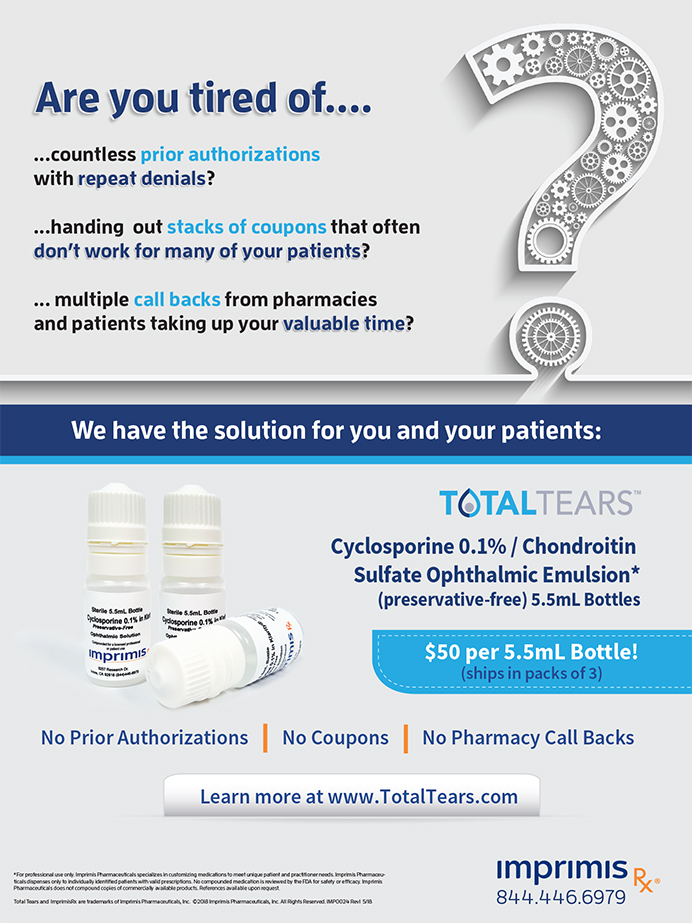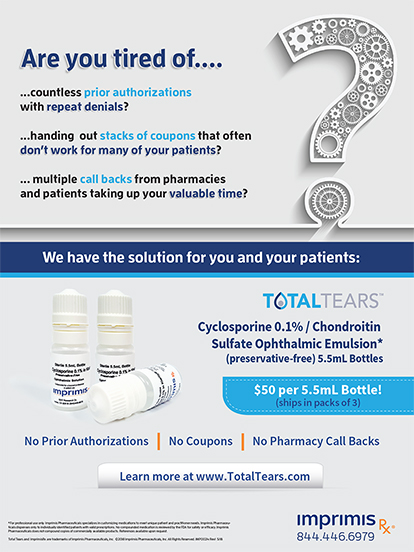When adding any employee to a surgical practice, it is important to first do a needs assessment and determine the goals of the practice, and then define how the new hire can help achieve those goals. A clear job description, including a list of responsibilities, helps to set expectations for practitioners and provides tools for measuring success.
In our practice, we have a medical comanagement model. It’s an integrated system of ophthalmologists and optometrists that provides the opportunity for everyone to work together at the highest level of their training and abilities to deliver excellence in patient care. Our ophthalmologists and optometrists also work with a provider network of several hundred community optometrists providing optometric and ophthalmologic medical and surgical consultations and procedures, with the goal of having the patient return for routine eye care with their primary care optometrist. We do not have any optical services, and ODs in our practice are not fitting glasses or contact lenses.
WHAT MY PRACTICE LOOKS FOR
In a medical and surgical comanagement practice such as ours, it is imperative to have ODs who are interested in this type of eye care delivery system. Optometrists who appeal to us have two attractive qualities: a high level of education and an approachable, curious personality.
Education
From an educational perspective, an optometrist who has completed an additional year of residency beyond optometry school is favorable. It is not necessary to have previous experience in a comanagement setting, as we are happy to provide training.
The ODs in our practice work closely with the surgeons. They see all postoperative cataract surgery patients on postoperative day 1 and often manage medical follow-ups for issues such as conjunctivitis and keratitis. They also are a vital part to routine glaucoma care.
Personality
Confidence without arrogance, the ability to ask for help or guidance when unsure of a management issue, and the ability to identify a complication and bring it to the surgeon’s immediate attention are critical for a successful OD/MD partnership.
An individual who shows kindness toward patients and staff, is a continuous learner, and performs well in a culture of continuous improvement with a positive attitude is an asset to any practice. Because my practice collaborates with optometrists outside of our practice, the ODs with whom we work need to be approachable and willing to act as a resource for the optometric community. My practice provides continuing education sessions for optometrists in our referral base, and we expect that these ODs will be willing to give presentations and be actively involved in education.
DOCTORS WITH A PASSION FOR EYE CARE
Overall, my office seeks motivated optometrists interested in working closely with surgeons as team members in an integrated medical comanagement model of eye care delivery and providing optometric referral services for members of the optometric community. Those who share our passion for excellence and innovation in eye care, collaboration, and education would be great members of our team.






